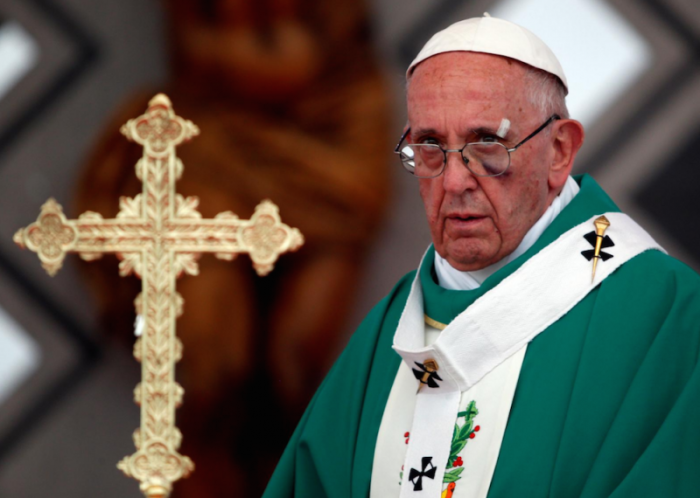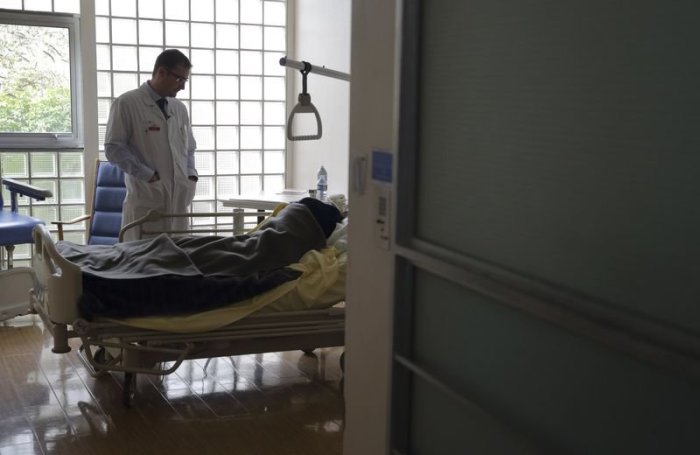Catholic Hospital Brothers of Charity to Face Vatican for Defiantly Granting Euthanasia to Mentally Ill

A group of Catholic psychiatric hospitals in Belgium could soon be stripped of their Catholic identity if they fail to stop granting euthanasia to mentally ill patients in defiance of an order from Pope Francis that they end the practice.
"As the Brothers of Charity Organization decided in its meeting on Sept. 11 not to adapt its vision statement on the performance of euthanasia, and thus allowing euthanasia under certain conditions in their institutions, by which it goes against the request of the Vatican to conform to the Catholic doctrine in this matter, and given the fact that the attempts to enter into consultations in Belgium did not produce the desired result, the Brothers of Charity Organization will be invited by the Vatican to explain their vision, after which a final decision will be made," the Brothers of Charity Generalate in Rome announced in a statement earlier this month.
Brother René Stockman, worldwide leader of the Rome-based Brothers of Charity who opposes euthanasia, had warned its Belgian arm this summer that the group would lose the right to call themselves Catholic if they didn't abandon its defiant euthanasia policy adopted in March. He told The Wall Street Journal that the chain of hospitals could lose buildings that belong to the Catholic Church. He said that despite inviting the board to Rome to explain their position on euthanasia, the Vatican will be making no compromise on their stance against it.
Despite Pope Francis' open condemnation of euthanasia and the Catholic Church's defense of the inviolability of life, the board of the Brothers of Charity, Belgium's largest single provider of psychiatric care, insisted last month that it is more Christian to allow people who are in "hopeless mental suffering" to choose if they want to live or die than tell them that euthanasia isn't an option.

"God calls us to show love and mercy, including mercy to the psychiatric patient. Of course, that is why we always put life first. The life perspective pathway remains paramount. Nevertheless, exceptional situations can occur with persistent and hopeless mental suffering, which is why we, from a Christian personalism, can understand the choice for euthanasia," the board of Brothers of Charity, Belgium, argued in September.
The majority lay person board of the hospital which includes former Belgian Prime Minister Herman Van Rompuy, argued that the Bible does not support the inviolability of life as an absolute notion as presented by the Catholic Church.
"Certain actions are considered as 'inherently evil,' improper anywhere and anytime because they go against the absolute notion of the inviolability of life. As a result, ethics become an ideology, an absolute view with which you can go to battle, well-protected against any argument, reason or debate. And the latter is radically contrary to one of the core points of biblical Christian tradition, in particular the first Commandment: 'You shall give praise to God, He is one, there is no other,'" the board argued.
"That means that there is only one absolute, and that is God Himself. Anyone who makes something else absolute, makes something else God, which is not reconcilable with giving praise to the God of the Bible," they added.
In that context the board argues that a patient's decision to die should be left up to their conscience.
"A person who applies for euthanasia will make that decision according to their conscience. We should not judge a person's choice of conscience too quickly. It is important to us that our vision does not obstruct the care relationship and the support. Based on the two outlined pathways and the due care requirements, we explicitly choose to be close to the patient, seeking ways of hope, and guiding the patient in their euthanasia request, even if in exceptional cases it ultimately leads to euthanasia being carried out," they argued.
In 2002, Belgium became the first country with a majority Catholic population to legalize euthanasia. Since then, deaths by euthanasia has jumped from 235 cases in 2003 to 2022 cases in 2015, The Wall Street Journal said. A majority of the cases in 2015, some 67 percent were terminal patients while 15 percent were non-terminal. Some 3 percent were psychiatric cases though some of that number were terminal.
In the past year, 12 patients at the Brothers of Charity which was founded in 1807 in Ghent, Belgium, have asked for euthanasia. Two were transferred offsite to get fatal injections.
Brothers of Charity is considered the most important provider of mental health care services in the Flanders region of Belgium the Catholic Herald says. They serve 5,000 patients annually.
When they opted to change their euthanasia policy in March, they said they wanted to be in line with Belgian law. The decision explains the Catholic Herald also came a year after a private Catholic rest home in Diest, Belgium, was fined $6,600 for refusing euthanasia to a 74-year-old woman suffering from lung cancer.
Didier Pollefeyt, a theologian and vice rector of the Catholic University of Leuven told The Wall Street Journal that the policy change is highly symbolic.
"The Brothers of Charity have been seen as a beacon of hope and resistance" to euthanasia, he told the publication. "Now that the most Catholic institution gives up resistance, it looks like the most normal thing in the world."
Responding to the Brothers of Charity decision in early October, Stockman, who is also a psychiatric care specialist, said the Church needed to oppose the "culture of death" gripping the world.
"As congregation we remain hoping that — as before — also in Belgium a prophetic voice should be sounding, a voice that is sometimes contrary to the public opinion, but that incites people to reflect on the way our society is dealing with the fragile man and the suffering man in particular," he wrote in defense of the mentally ill.
"Our society has to invest urgently more in the care of these people and to stimulate new therapies. Pope John Paul II spoke about a shift from a 'culture of life' to a 'culture of death.' Some claim that refusing euthanasia to someone who suffers seriously and with no reasonable treatment perspective is a merciless act. Is the word 'mercy' not abused here and bend to the opposite of what it originally means: an act by which one gives a better and fuller life to fellow people. Can killing become an act of mercy?" he asked.
"Don't we have to learn rather to give suffering, that befalls us all, a place in life, to do everything to heal and before all to ease it by the presence of the fellow men who know what compassion is. And this has nothing to do with a kind of misplaced glorification of suffering nor with a therapeutic obstinacy," he argued.
"We don't condemn by no means people who choose for euthanasia, even though we cannot approve this as act. Mercy in the Christian meaning of the word doesn't allow euthanasia. Therefore there is no place for euthanasia in the institutes of the Brothers of Charity. This has to be clearly communicated to patients and their family before every admission. Is this a sign of being merciless and lovelessness? On the contrary. The charism of the Brothers of Charity sounds as follows: the measure of love, is love without measure, not at least for the heavily afflicted fragile fellow man," Stockman noted.





























